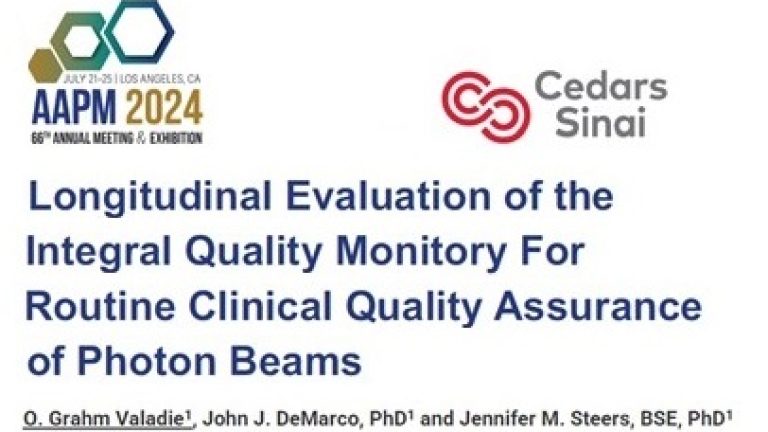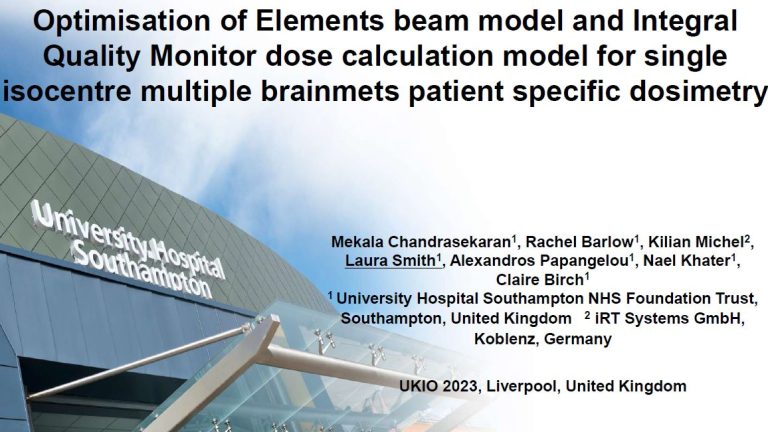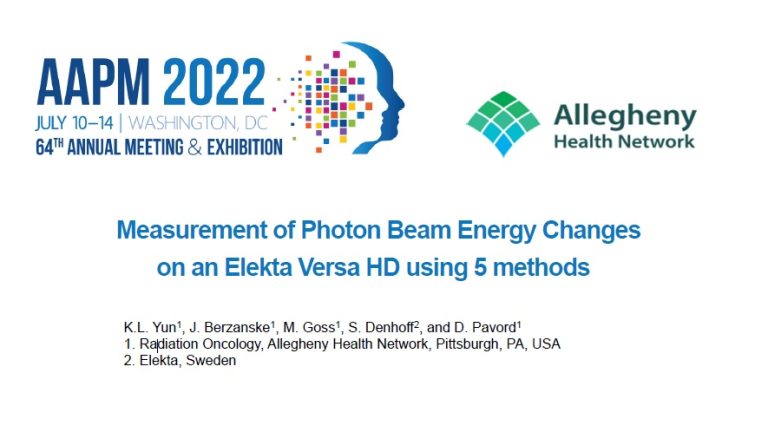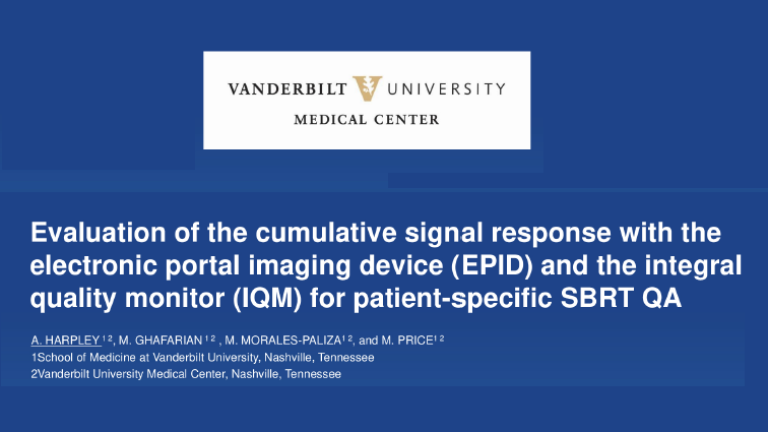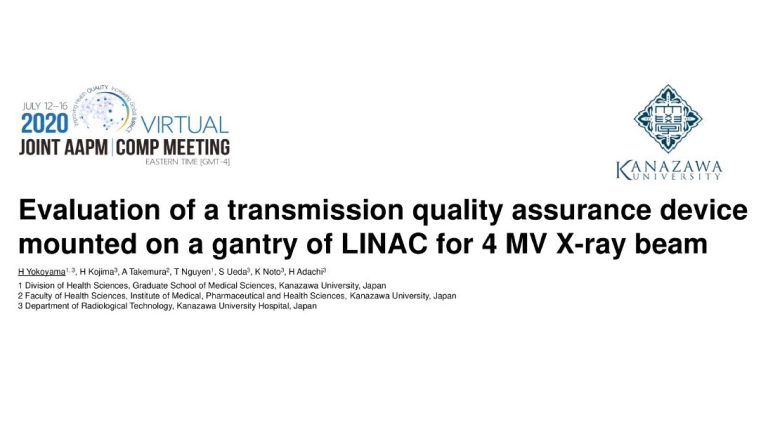Publications
The IQM System has been thoroughly evaluated by some of the world's leading radiation therapy centers.
Select your topic of interest from 15 articles, 17 posters,
19 presentations and 3 technical white papers.
Longitudinal Evaluation of the IQM for Routine Clinical Quality Assurance of Photon Beams
Author:
O. Grahm Valadie1, et al, Cedars-Sinai Medical Center, Los Angeles, CA
Summary:
The purpose of this project is to compare the QA capabilities of the IQM to clinically established QA devices and to shows its potential to efficiently replace current QA devices, while minimizing setup error for daily and monthly QA.
Using the IQM Transmission Detector to Monitor Linac Performance
Author:
Dan Pavord, Allegheny Health Network, Pittsburgh, PA
Summary:
Dan Pavord, Chief of Medical Physics at Allegheny Health Network in Pittsburgh, presented groundbreaking findings on the use of the Integral Quality Monitor (IQM) for comprehensive machine quality assurance (QA).
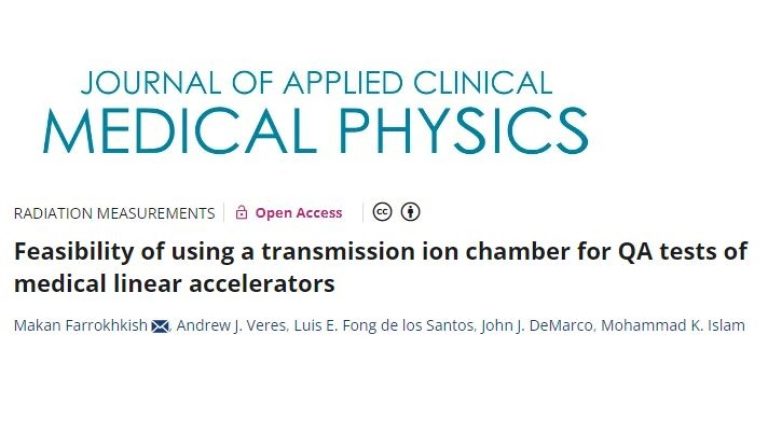
Feasibility of using a transmission ion chamber for QA tests of medical linear accelerators
Author:
Makan Farrokhkish, et al, Multi-Center Study
Summary:
This multi-center study investigated the IQM System for constancy measurements of various beam parameters for photon beams. The results suggest that the system can be used for most of the routine QA tests effectively and efficiently.
.
Optimisation of Elements beam model and IQM dose calculation model for single isocentre multiple brainmets patient specific dosimetry
Author:
M. Chandrasekaran1, et al, University Hospital Southampton (UK)
Summary:
This study aimed to find the best fit Elements multi leaf collimator (MLC) parameters and improve the accuracy of the IQM dose calculation model for single isocentre treatment for
multiple brainmets (MBM) and patient specific dosimetry (PSD) for Elekta Agility Versa HD linac.
.
Measuring Photon Beam Energy Changes on an Elekta Versa HD using 5 methods
Author:
K.L. Yun, et al, Allegheny Health Network (USA)
Summary:
The clinical physics group compared the sensitivity of the IQM System to beam energy changes against 4 other conventional methods.
They concluded that the IQM device was approximately twice as sensitive as the other chamber methods.
.
Comparison of IQM and SRS MapCheck for pre-treatment SRS/SRT QA
Author:
Y. Liang, et al, Allegheny Health Network (USA)
Summary:
The clinical physics group compared Sun Nuclear SRS MapCheck and IQM for the patient-specific QA of three single ISO multi-met SRS plans created with the Brainlab Elements MME TPS.
They concluded that both systems showed good agreement between the QA results, but that the QA time was dramatically reduced with IQM by approximately a factor of 10.
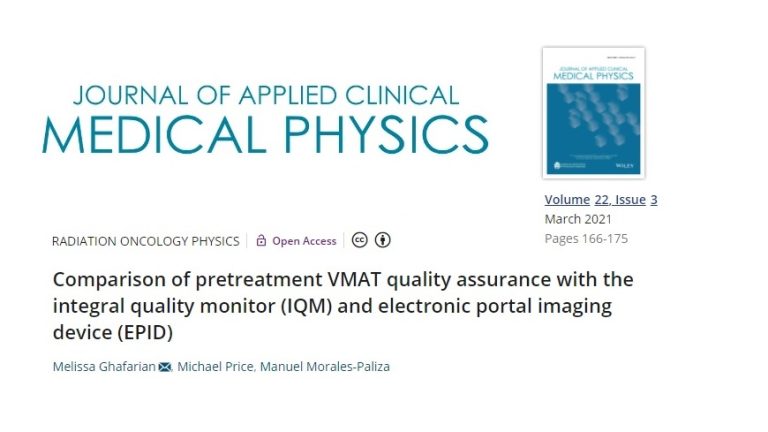
Comparison of pre-treatment VMAT QA between IQM and Varian Portal Dosimetry
Author:
Melissa Ghafarian, et al, Vanderbilt University Medical Center, Nashville, USA
Summary:
The purpose of this study was to compare pre-treatment VMAT QA measurements and evaluate the MLC error sensitivity of two detectors: the IQM System and the Varian Portal Dosimetry System.
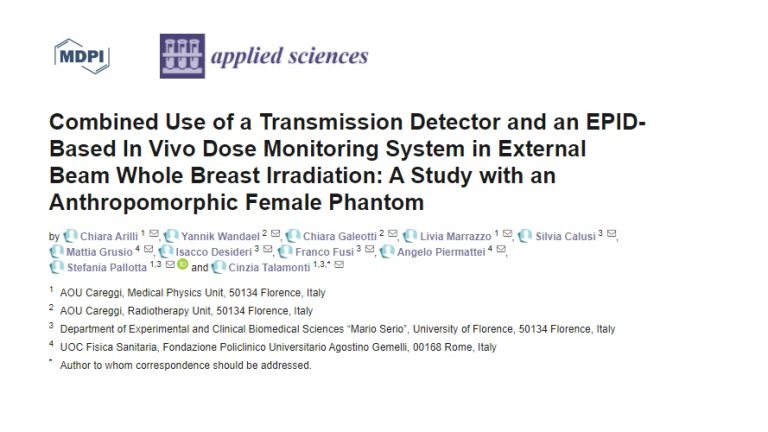
Combined use of IQM and an EPID-Based In Vivo Dose Monitoring System
Author:
Cinzia Talamonti, et al, University of Florence (Italy)
Summary:
Evaluation of the combined use of the IQM system and SoftDiso portal dosimetry software, for in vivo dose monitoring by simultaneous detection of delivery and patient setup errors in whole breast irradiation. The combined use of the IQM and SoftDiso allows for fast identification of both delivery and setup errors and substantially reduces the impact of error identification and correction on the treatment workflow.
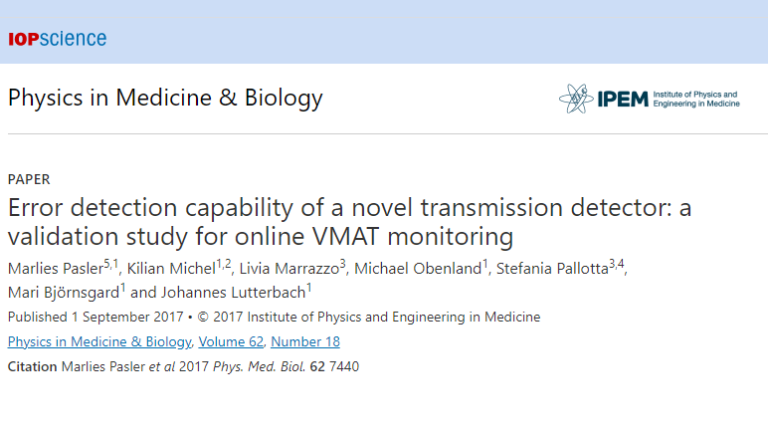
Error detection capability of a novel transmission detector: a validation study for online VMAT monitoring
The purpose of this study by Pasler, Marazzo, et al was to characterize a new single large-area ionization chamber for online and real-time beam monitoring.
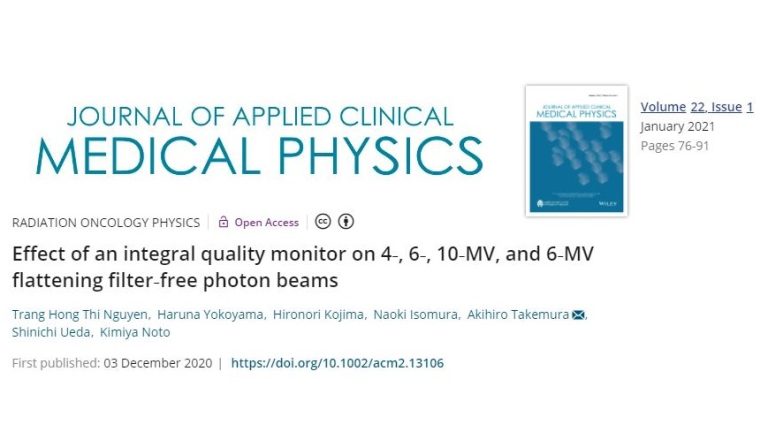
Effect of the IQM on 4-, 6-, 10-MV and 6FFF photon beams
Author:
Trang Hong Thi Nguyen, et al, Kanazawa University (Japan)
Summary:
Assessment of surface dose, PDD20,10 , TPR20,10 , PDD curves, inline and crossline profiles, transmission factor, and output factor with and without the IQM detector in order to investigate the effect of the IQM detector on 4, 6, 10, and 6-MV flattening filter-free (FFF) photon beams.
Evaluation of the signal response with the EPID and the IQM for SBRT QA
Author:
Adam Harpley, et al, Vanderbilt University Medical Center, Nashville (USA)
Summary:
The clinical physics group introduced a variety of clinically significant treatment delivery errors into 8 retrospective SBRT plans and compared the error sensitivity of IQM to their Varian Portal Dosimetry system.
Evaluation of the IQM for 4MV x-ray beam
Author:
Haruna Yokoyama, et al, Kanazawa University (Japan)
Summary:
The clinical physics group introduced a variety of clinically significant treatment delivery errors into 6 different treatment techniques (3x 3DCRT, 1x IMRT and 2x VMAT) all utilizing 4MV treatment beams.
They concluded that IQM was more sensitive to the MLC errors than the conventional QA method. IQM was also able to detect the systematic open/close leaf position and leaf shift errors in all the modified plans. They stated that IQM was even able to detect single leaf shifts within an otherwise correct field size and shape.
SIGN UP FOR OUR NEWSLETTER
Sign up for our newsletter. Receive the latest research. Know when we install IQM in your neighbourhood. Get invited to an upcoming event.

